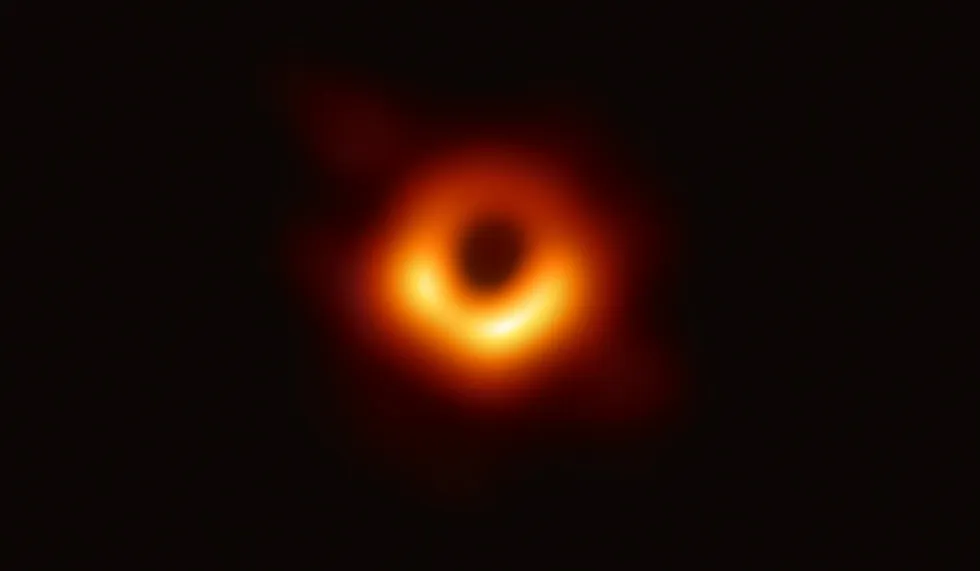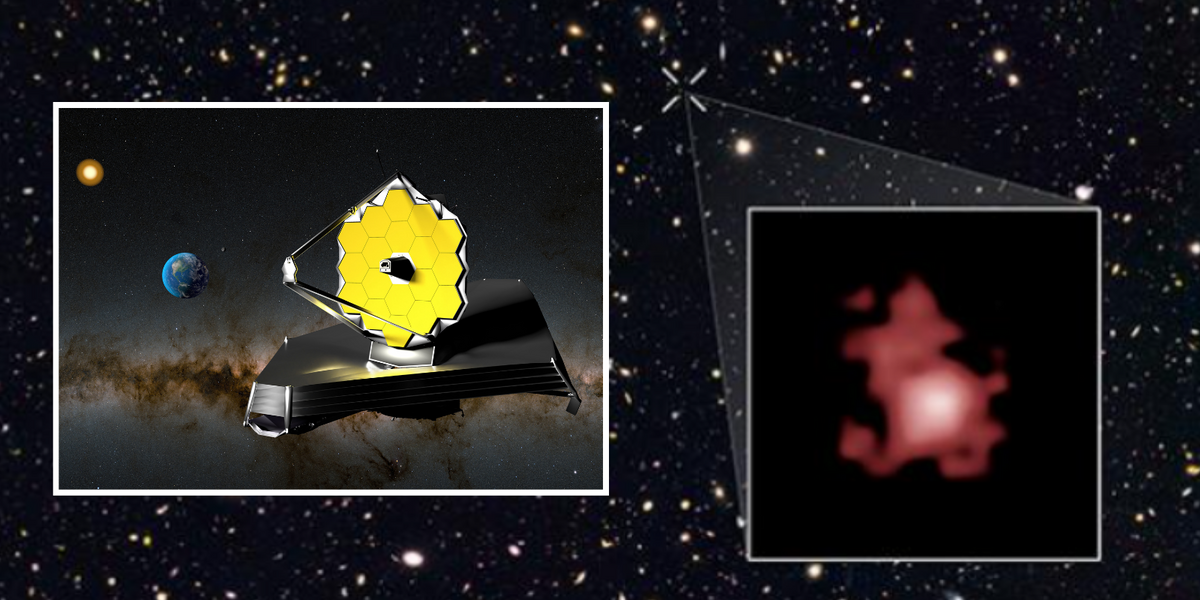Astronomers at the University of Cambridge have detected the world’s oldest black hole ever using Nasa’s James Webb Telescope, and it is eating its host galaxy to death at an astonishing speed.
The black hole dates back 400 million years after the Big Bang, more than 13 billion years ago.
The existence of the massive entity – a few million times larger than our sun – is challenging what scientists know about the universe.
The results of the research have been deemed as a “giant leap forward”, according to author Professor Roberto Maiolino.
The black hole dates back 400 million years after the Big Bang, more than 13 billion years ago
Getty/University of Cambridge
Current models suggest that supermassive black holes form after a huge star dies.
After it collapses, a humungous black hole can form, devouring dust, gas, planets, stars and even other black holes as it grows in size.
They can grow in size to about a hundred times the mass of our own galaxy’s sun.
If the newly detected black hole grew in this expected way, it would have taken the entity about a billion years to grow to its current size.
SPACE LATEST:
However, the universe was not yet a billion years old when it was discovered, causing scientists to reconsider the way they view the universe.
He said: “It’s very early in the universe to see a black hole this massive, so we’ve got to consider other ways they might form.
“Very early galaxies were extremely gas-rich, so they would have been like a buffet for black holes.”
Explaining the anomaly, scientists have said that it is possible the black holes can be “born big”.
The newly discovered black hole is consuming all matter that surrounds it at a rate that is far more vigorously than others.

Current models suggest that supermassive black holes form after a huge star dies
Nasa
The black hole is at the centre of a young host galaxy, called GN-z11, which is about one hundred times smaller than the Milky Way.
Scientists believe that GN-z11 is being ravaged by the humongous
black hole at its centre.
Professor Maiolino says that the gigantic leap forward
provided by the Nasa James Webb telescope makes this the most exciting time in
his career.
He explained: “Before Webb came online, I thought maybe the
universe isn’t so interesting when you go beyond what we could see with the
Hubble Space Telescope.
“But that hasn’t been the case at all: the universe has been
quite generous in what it’s showing us, and this is just the beginning.”

Dr. Thomas Hughes is a UK-based scientist and science communicator who makes complex topics accessible to readers. His articles explore breakthroughs in various scientific disciplines, from space exploration to cutting-edge research.








